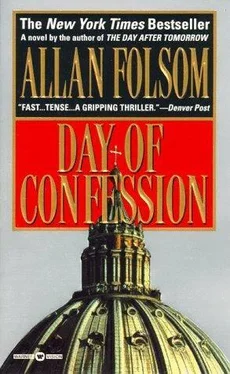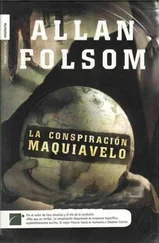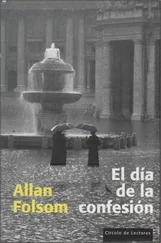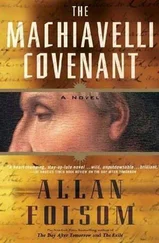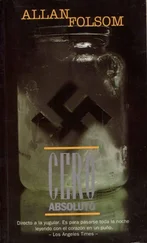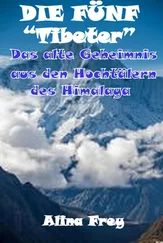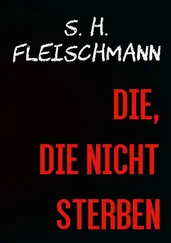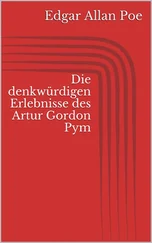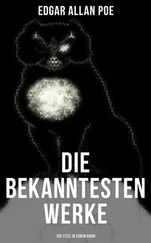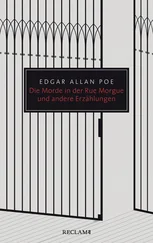'Don't, please…'
'Where is your brother?'
'Dead!'
'No, comrade. He's alive, and you know where he is…'
The light was only inches away now. Becoming brighter. And brighter. Its pinpoint sharpened even more. The pounding inside his head grew. The light came closer, a needle pushing from the outside in, toward the back of his brain.
'STOP!' Harry screamed. 'MY GOD! STOP! PLEASE!'
'Where is he?' Male.
'Where is he?' Female.
Thomas Kind shifted from one voice to the other, playing both man and woman.
'Tell us and the light will stop.' Male.
'The light will stop.' Female.
The voices calm, even quiet.
The pounding became thunderous. Louder than anything Harry had ever heard. An enormous booming drum inside his head. And the light crept on toward the center of his brain, a white-hot needle searing toward the sound. Trying to mate with it. Brighter than anything he'd ever seen, or could ever imagine. Brighter than a welding arc. The core of the sun. Pain became everything; it was so terrible he was certain even death would not end it. He would take its horror with him into eternity.
'I DON'T KNOW! I DON'T KNOW! I DON'T KNOW! GOD! GOD! STOP IT! STOP IT! PLEASE! – PLEASE… PLEASE…'
CLICK.
The light went out.
Rome . Harry Addison's room, the Hotel Hassler.
Thursday July 9, 6:00 a.m.
Nothing had been touched. Harry's briefcase and working notes were on the table next to the telephone as he'd left them. The same for his clothes in the closet and his toiletries in the bathroom. The only difference was that a bug had been placed in each of the two telephones, the one by the bed, the other in the bathroom, and a tiny surveillance camera had been mounted behind the light sconce facing the door. This was part of the plan put in motion by Gruppo Cardinale, the special task force set up by decree of the Italian Ministry of the Interior in response to passionate appeals by legislators, the Vatican, the carabinieri, and the police in the wake of the murder of the cardinal vicar of Rome.
The murder of Cardinal Parma and the bombing of the Assisi bus were no longer separate investigations but were now considered components of the same crime. Under the umbrella of Gruppo Cardinale, special investigators from the carabinieri, Squadra Mobile of the Italian police, and DIGOS, the special unit that investigates criminal acts with suspected political motive, all reported to the head of Gruppo Cardinale, ranking prosecutor Marcello Taglia; and while the highly respected Taglia did indeed coordinate the activities of the various police agencies, there was no doubt in anyone's mind who Gruppo Cardinale's true ' Il responsabile', the man in charge, was – Ispettore Capo Otello Roscani.
8:30 A.M.
Roscani stared, then turned away. He knew all too well what the circular saw did in an autopsy. Cutting into the skull, taking the cap off so that the brain could be removed. And then the rest of it, taking Pio apart almost piece by piece, looking for anything that would tell them more than they already knew. What that might be Roscani didn't know, because he already had enough information to establish Pio's killer beyond what he believed was reasonable doubt. Pio's 9mm Beretta had been confirmed as the murder weapon, and several clear prints had been found on it. Most were Pio's, but two were not – one, just above the left grip, the other on the right side of the trigger guard.
A query to the Los Angeles bureau of the FBI had, in turn, accessed the files of the California Department of Motor Vehicles in Sacramento, requesting a copy of the driver's license thumbprint of one Harry Addison, 2175 Benedict Canyon Drive, Los Angeles, California. Less than thirty minutes later, a computer-enhanced copy of Addison's thumbprint had been faxed to Gruppo Cardinale headquarters in Rome. The whorl pattern and measured ridge tracings matched perfectly with those on the print lifted from the left grip of the gun that had killed Gianni Pio.
For the first time in his life Roscani grimaced at the sound of the saw as the morgue doors closed behind him, and he walked down the hallway and up the steps of the Obitorio Comunale. Something he had done a thousand times in his career. He had seen policemen dead. Judges dead. The bodies of murdered women and children. Tragic as they were, he'd been able to distance himself professionally. But not this time.
Roscani was a cop, and cops got killed all the time. It was a truth drummed into you day after day at the institute. One you were supposed to accept going in. It was tragic and sad, but it was reality. And when it came, you were supposed to be prepared to deal with it professionally. Pay homage and move on; without anger, outrage, or hatred for the killer. It was part of what you were trained for in the career you chose.
And you thought you were trained – until the day you walked around your partner's body and saw the blood and shredded flesh and shattered bone. The grotesque work the bullets had done. Then saw it all over again when the medical people began their work in the morgue. That was when you knew you weren't prepared for it at all. No one could be, no matter what he was trained for, or taught, or what anyone else said. Loss and rage stormed through you like wildfire, overtaking everything. It was why – whenever cops were killed – every policeman who could, from every district reachable, sometimes from across continents, came to the funeral. Why five hundred uniformed men and women on motorcycles were not uncommon, riding in solemn procession in honor of a comrade who might have been only a year on the force, a rookie on foot patrol.
Angrily Roscani shoved open a side door and stepped into the morning sun. Its warmth should have been a welcome relief from the coldness of the rooms below, but it wasn't. Taking the long way around the building, he tried to let his emotions fade, but they didn't. Finally, he turned a corner and walked down a ramp to the street where he'd parked his car. Sadness and loss and anger were crushing him.
Leaving his car, he stepped off the curb, waited for traffic to pass, then crossed the street and started to walk. He needed what he called ' assoluta tranquillita', a kind of splendid silence, that quiet time when you were alone and could think things through properly. Especially now, time alone to try and walk off the emotion, to begin to think things through as an investigator for Gruppo Cardinale, not as the shattered, enraged partner of Gianni Pio.
Time for silence and to think.
To walk and walk and walk.
Thomas Kind pulled back a window certain and watched as the men in coveralls emerged from the building and took Harry Addison across the courtyard. He had what he needed from him, or at least as much as he was going to get; now the men in coveralls simply needed to get rid of him.
Harry could see only from his right eye. And that was more shadow than image. His left eye had no feeling or sight whatsoever. His other senses told him that he was outside and being walked across a hard surface by, he thought, two men. Somewhere he had the vaguest memory of sitting on a stool or something like it, of taking directions and saying words out loud that were spoken to him through an earphone by the same voice that had spoken to him before. He remembered that only because of the fuss someone else had made about fitting the device in his ear. Most of the argument was in Italian. But part had been fought in English. It was the wrong size. It wouldn't work. It would show.
Abruptly a male voice beside him spoke sharply in Italian – the same man, he thought, who had argued about the earphone while trying to fit it. A moment later, a hand shoved him from behind and he nearly stumbled. His recovery cleared his thoughts enough to tell him that while his hands were still bound behind him, his feet had been freed. He was walking on his own, and he thought he could hear traffic. His mind cleared to another level, telling him that if he could walk, he could run. He couldn't see and he had no use of his hands. The hand shoved him again. Hard. And he fell, crying out as he hit and felt his face scrape the pavement. He tried to roll over, but a foot stamped on his chest, holding him there. Somewhere nearby came the sound of a man straining, then there was a clank, and he heard something heavy, like iron scraping stone, sliding past his ear. Then he was lifted up by his shoulders and put over an edge. His feet touched steel and he was forced down the rungs of a ladder. Instantly what little light there was faded, and stench dominated everything.
Читать дальше
